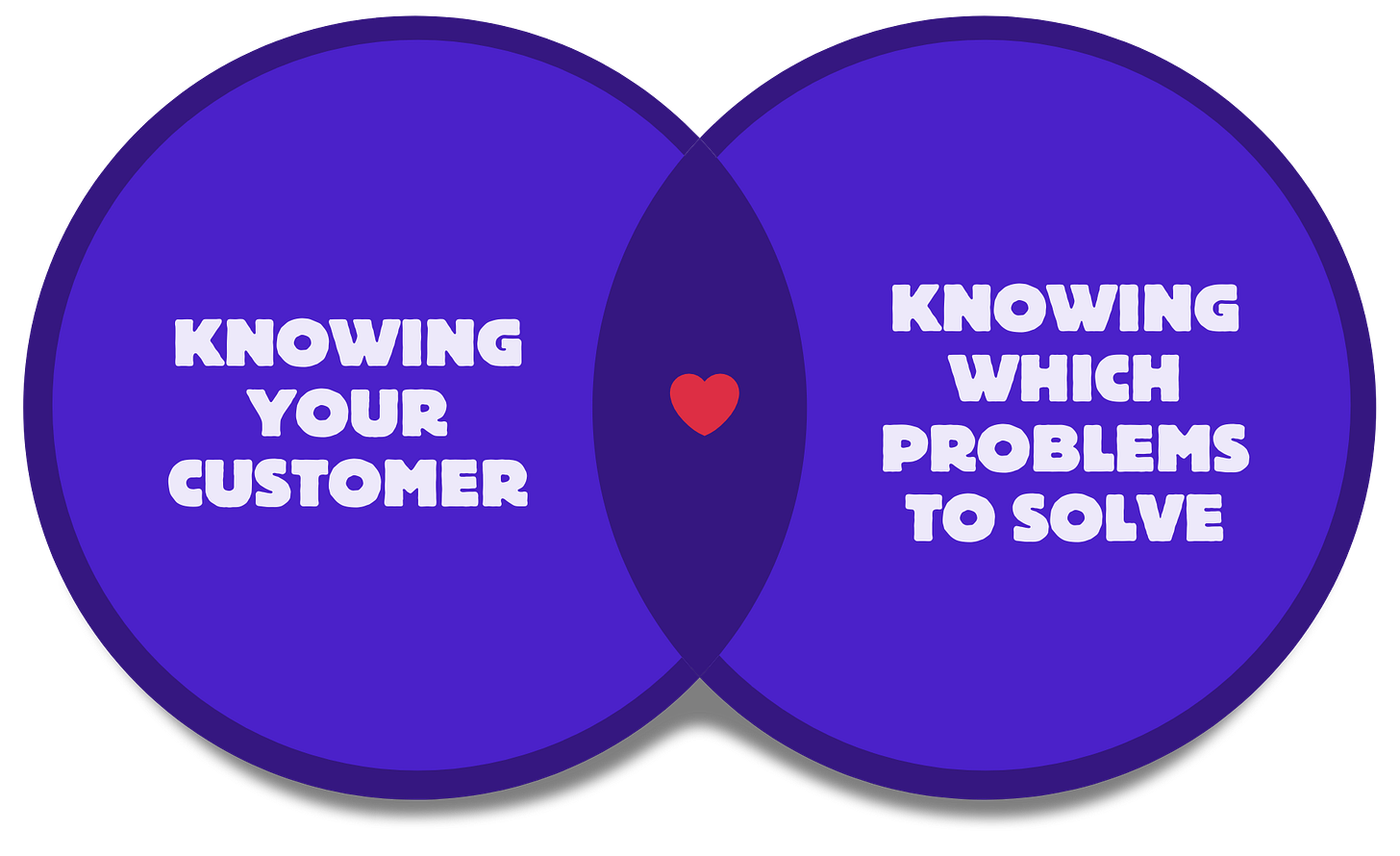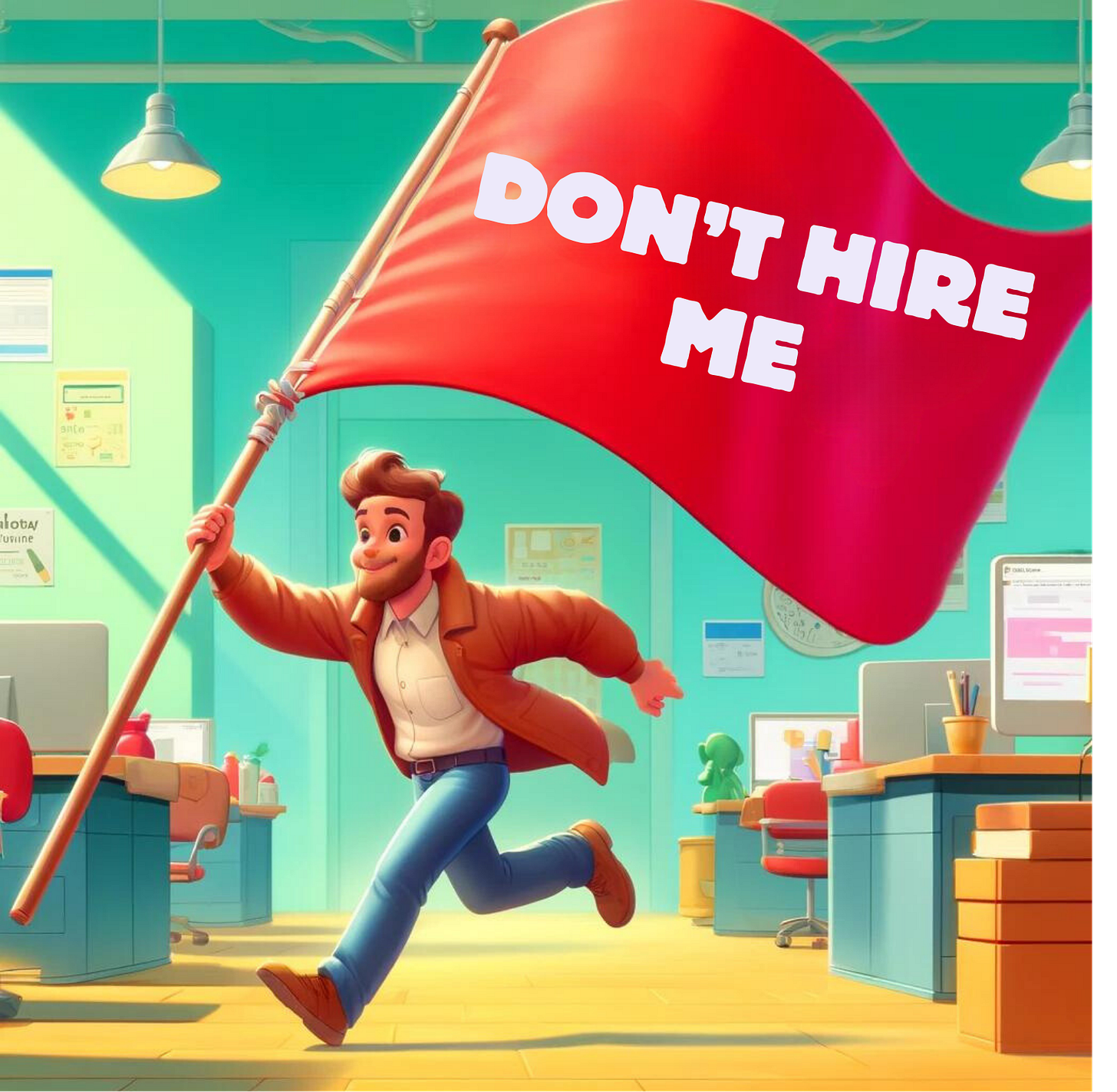3 red flags that signal: "Don't hire this PM"
Three Big Flashing Warning Signs of a Bad Product Manager
Hiring a product manager is complicated because many of the skills product managers need to have are hard to confirm in 2 to 3 interviews. (Check out last week’s newsletter on skills the top 1% of PMs have, here)
Yet there are huge red flags you can identify within 10-15 minutes in the first round.
The first round of interviews is usually a “walk-me-through-your-resume” type of interview. When I first started my professional career I did not understand why this type of interview existed. Don’t they read the god-damn CV I sent them before the meeting?
After a couple of years, of sitting on the other side of the table, this became one of my favorite ways to weed out a big junk early.
IMPORTANT: These red flags are for people who have already worked in product jobs before, not people who have no “Product Manager” position on their CV.
Red Flag #1: They don’t understand the problems they worked on
Out of 100 product management interviews, about 1/3 disqualified themselves after the first questions.
“What major problem did you try to solve in your last company.”
It’s surprising how many PMs don’t know what problem they are working on. To me this means they:
Administrated requests of others
Did not care too much
The first may have been outside their control, but the second wasn’t.
What is even worse, they did not even prepare to make something up beforehand for the 2 or 3 previous companies they worked at, if they did not know. So it’s 0 points for knowledge and -5 points for not even caring enough to make something up.
Conversely, those who can answer these questions well will show that they are passionate about solving problems, usually, I had to stop them from talking about the problems they solved and what they did to do so.

Red Flag #2: They don’t have a deep understanding of the customers they served
The second major red flag is product managers who can’t articulate who they built for. Even if they understood what major problem their company tried to solve, many could not describe why their users have this problem.
To understand why someone has a problem, one needs to understand what the user is trying to achieve, and what hinders them from achieving this. (What made it hard for them before you showed up)
Depending on the product this could be a specific task in their job (e.g.: Call transcription tool for a user researcher) or a product for their job overall. (e.g.: Human Resources System (HRS) for an HR generalist)
A product manager should care deeply not just about building things because users, sales, and customer success tell them to, but because they understand the pains, goals, and needs of their users.
Product managers who understand their customers well can articulate what their customers are trying to achieve and how they either helped them do it or how they made the lives of their customers significantly better. These PMs usually can quickly acquire specific business, customer & industry knowledge.
Red Flag #3: They can’t articulate their impact
When I get walked through a resume I usually ask questions that point towards the personal impact the PM had. Most PM CVs are full of “team achievements” or things the development team the PM was part of achieved. This is fine because the PM usually heavily contributes to that achievement.
Yet product management can be a very fluffy profession and there are quite a few “bad apples” who are not contributing greatly to the success of their teams. People that mainly coast along, some lucky with very product-minded engineers so it is not so severe that they are not contributing a great deal.

In an interview, if the CV is full of “We this” & “We that” it is hard to know who is simply nice not wanting to point at themselves when talking about these achievements and who did not contribute a whole lot.
This is a red flag I also struggled with for some time after my first PM job. In the first interviews, I usually went: “We did this ..”, “We achieved the following..”. After a while, a good interviewer stopped me and asked: “ I understand all the achievements your team made, they are great - but we are not hiring your team, we are hiring you! What did you personally contribute to this”.
At first, that caught me off guard, but it made so much sense.
How to prepare for a first-round interview
For hiring managers
Identify what you want to find out about the person, that is not already in their CV. For me it’s these 3 red flags, for you, it could be similar or something completely different.
What is most important is that you prioritize this in the first interview. It’s where you go from 30+ candidates to 5-10. It’s your opportunity to find who does not fit the company and also who does not fit you.
For product managers
This is the most important round of them all. Don’t go there like: “Let’s see where it goes” → It will probably go nowhere.
The hiring manager will be part of the other interviews. They will heavily influence other people you talk to in your interview journey. You want them on your side!
To make sure they are on your side - know your shit! You will probably talk about your CV, prepare to know every single bit in great detail, and have answers ready for who, what, how, and why about every single sentence you chose to write into it. If they ask about something you will be prepared, if they don’t ask you have a lot to talk about!
Good luck with your next interview!



